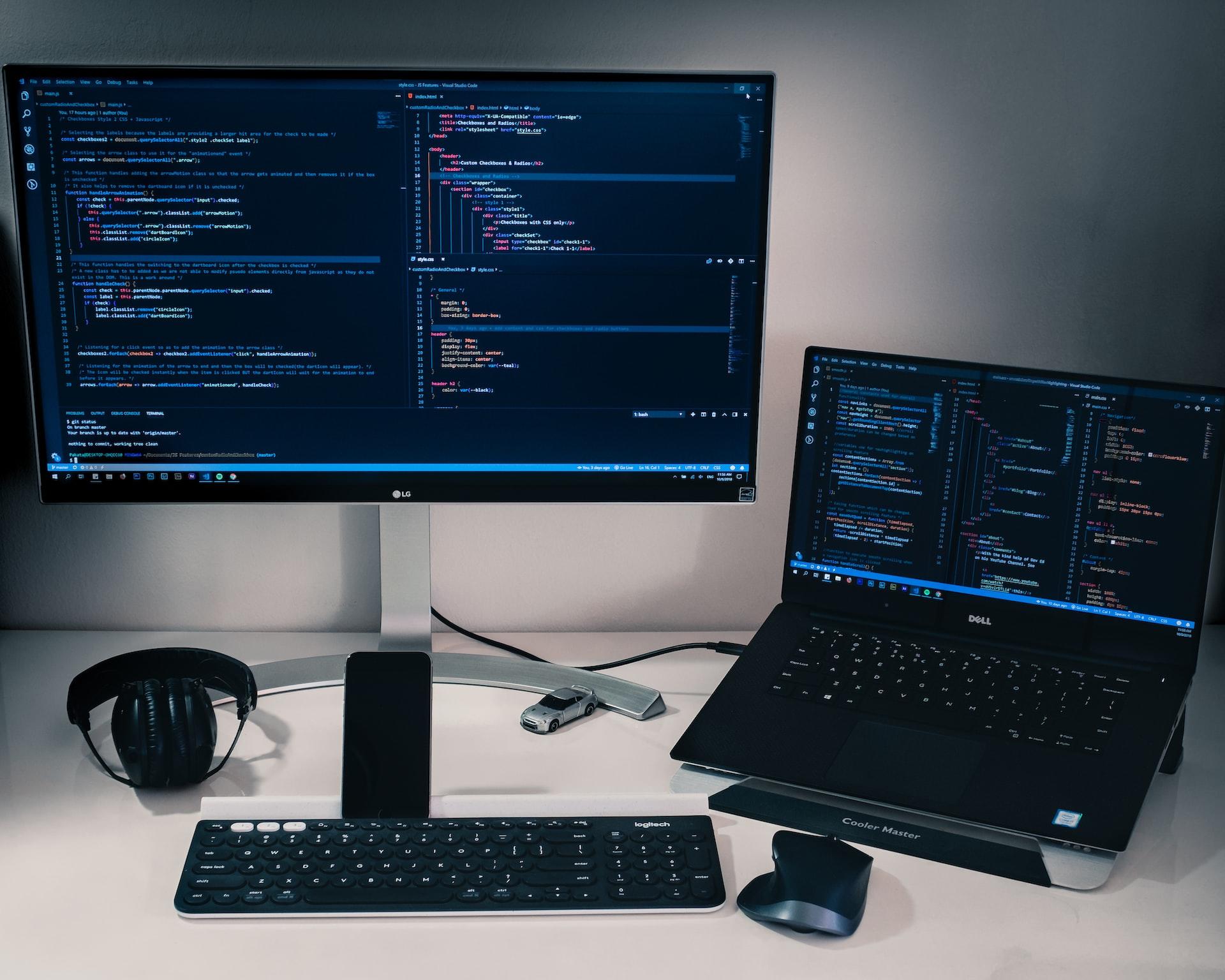There's an old joke about a boy boasting to his father that he won't have to take any crummy entry-level job. "I'm going to start at the top!" he proclaims, to which his father rejoins: "So you want to be a ditch digger?". We'll leave you to imagine what this fictitious boy's reaction was.
But was the child entirely wrong? Couldn't one start at the top of... Maybe not a profession, but something? In computer programming, more often than not, that answer is yes. Sure, you have to know coding fundamentals like language-specific syntax and structure. But after that, you can write as elegant and elaborate a program as you wish. And you don't have to wait for any boss to tell you to.
By learning the C language, you will effectively start at the top. The C programming language is one of the oldest and most popular languages. It's fast, versatile and the most widely used system programming language. As long as you were going to learn how to code anyway, why not learn the coding system that sees the most use? Read on to find out more.

C Language Origins
Ken Thompson and Dennis Richie are legends of computer programming. They started working together at Bell Labs in the US state of New Jersey in the late 60s. They were initially assigned to work on the Multics operating system; a time-sharing concept that influences computing still today. One day, they stumbled across an old, disused computer and set about developing an operating system for it. That system, complete with its own application programs, was dubbed Unix.

Operating system development wasn't enough; these scientists needed a language to interact with it. Ken Thompson created the B language for that purpose. The C language is B's successor. Apace with the Unix operating system development came language development. Soon, the C language was so evolved that Dennis Richie, along with Canadian computer scientist Brian Kernighan literally wrote the book on it. Known in coding circles as K&R, this book details all of the C language's features.
It didn't take long for C to claim its title as a standard programming language. By the late 70s, C language was used to code every type of machine from mainframes to microcomputers. In 1983, the American National Standards Institute (ANSI) set up a commission to study and standardise this language's specifications. The International Organisation for Standardisation (ISO) adopted ANSI's standard in 1990, albeit with a few formatting changes. The only strange thing about that is that SQL language achieved its ISO standard three years before.
C Language Features
printf("hello, world\n");
C language has a rather elaborate syntax. Semicolons are vitally important because they signal the end of a statement. In C language's most famous demonstration statement (above), you can see that the statement ends with that punctuation. Leaving it off means the program would keep reading and interpreting the code until it found a statement ender. Or, as is more likely, your program simply won't run.
The C programming language consists of a variety of 'tokens': keywords, identifiers, symbols and constants. In the above statement, for instance, you will find five tokens. In order, they are: the print command, the opening parenthesis, the comment (hello, world), the closing parenthesis and the semicolon. Omitting any token will cause your program to not execute.
Keywords have a special function in C language; they tell the program what to do. Keywords like 'continue', 'return' and 'break' have easy-to-understand functions. By contrast, 'int', 'struct' and '_Packed' probably need a bit of interpretation before you can know how to use them properly. These keywords are considered reserved; they cannot be used for any other function in written C code. They cannot be variables, constants or any type of identifier.
Learning C language is a lot like learning Shakespearian English or maybe Latin. It is lavish and formal in the extreme, but not cumbersome. Still, if you don't use the proper grammatical case or sentence structure (syntax) in those spoken languages, you will not be understood. The few features and functions we've described here hardly scratch the surface of the C language's complexity. But don't let these qualities and features scare you away from it. Read on to find out why you should learn C in spite of them.

C Language Applications
Until fairly recently, end-user applications like word processing software were written in C. For reference, MS Office software was written in C (current versions are written in C++). These days, it's less common to write application software in C but it is still widely used. For example, practically any embedded system from anti-lock brakes on cars to autopilot systems on planes is written in C language.
C really shines in systems programming that then functions as software platform generators. An operating system - Windows, Mac, Linux and, of course, Unix are examples of system programming. For all of its complexity - or maybe thanks to it, C is not an extensive language. It contains relatively few statements and expressions; they tend to map well on sequences of instructions. That, in turn, makes its executions fast. For these reasons, the C language is essential.
So essential, in fact, that other programming languages rely on C. For example, Python and Perl compilers and interpreters are written in C. A compiler functions as a translator that converts one computer language, a source language into a target language - the specific language a program needs to run. An interpreter, by contrast, executes instructions without a translating function.
Should you wonder which coding language you should learn, discovering C language's full breadth of applications and functions will certainly impact your decision. Python might entice you because it's fun and easy to use. But once you know that Python libraries and reference implementations are written in C, it makes better sense to learn that language as well. Or maybe just learn C; that will arm you with the knowledge to understand other languages.

What About Java?
Java and C language have battled for coding language supremacy pretty much since Java's debut in 1995. To this day, the jury is out on which is better. To get a true understanding of this tug of war, we need to compare them. Let's look at what types of languages they are, how they can be used and some of their functions.
C is a procedural programming language. It tells the machine what to do in well-laid-out steps. By contrast, Java is an object-oriented programming language (OOP). OOPs define data types within a (data) structure and what can be done with it. Java is data-oriented - as the Python programming language is, while C is program-oriented.
In Java, memory management and object management are automatic. That is to say that Java incorporates automatic memory management called garbage collection. It's a way of time-saving way to reclaim memory that had been allocated to a program but is no longer referenced. By contrast, C language programs require the programmer to manage memory manually.
You might compare that to analysing and optimising your computer drives. If it's not done on time, you end up with a lot of file fragments - garbage, that are no longer needed. If those fragments aren't regularly collected, they can cause your computer to run less efficiently. Or, eventually, cause it to crash repeatedly. Newer laptops tend to optimise their disks automatically (unless you disable that setting). Note that when programming in C language, you can add a garbage collector called Boehm GC from a library.
Now, for variables and where they belong. In programming, a variable is a storage area that the program can use. When programming in C language, you must declare your variables - the size, layout and what can be done with those spaces, ahead of every block of code. Remember the C language is top-down, the program will follow sequential steps. By contrast, a Java variable can go anywhere. But it's just good practice to place them ahead of the code blocks.
Java and C language have other important differences like managing exceptions - read 'errors' (Java does, C doesn't) and memory allocation (possible in both languages but more easily done in Java). Java may be easier to learn and require programmers to write a lot less code but learning C language will make you a better programmer. You'll understand better how to implement functionality because you have to do it manually.
High-level programming languages like Ruby and even C# may have rich frameworks but C lets you interact with computer hardware. It's used in firmware, operating systems and, as mentioned above, in embedded systems software. You might even call C a gateway language. Once you learn how to program using C, you'll have an overview of how other programming languages are structured. And which applications they work best for.
When you're ready to learn C language, Superprof programming tutors are standing by to start your tutorial. We have thousands of coding experts specialising in all of the best languages to learn. You can take programming lessons online with Superprof tutors around the world.
Summarise with AI:
















